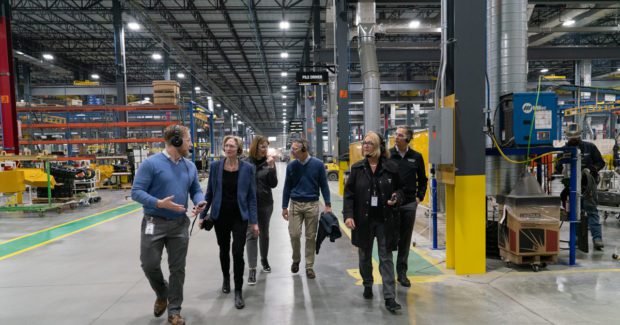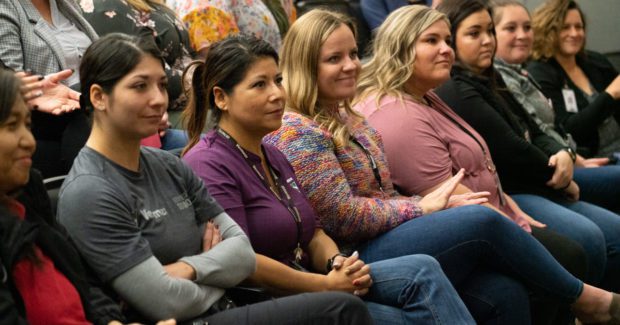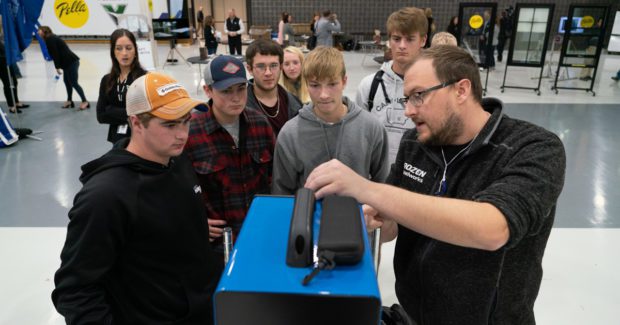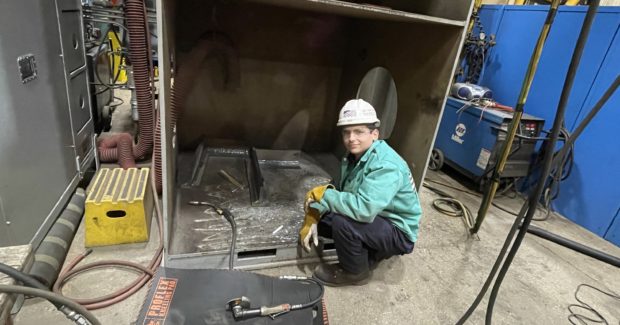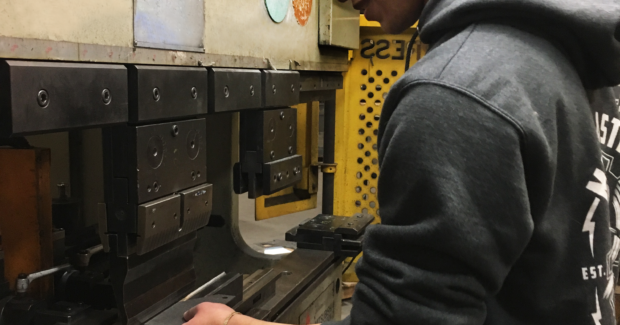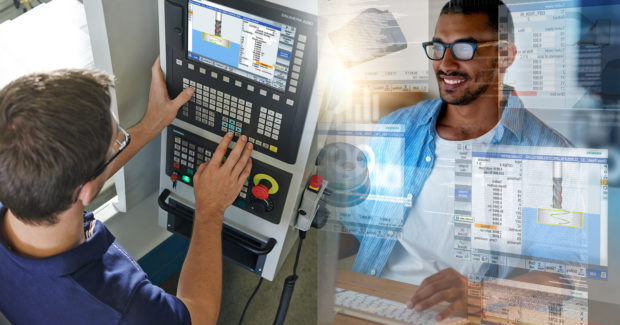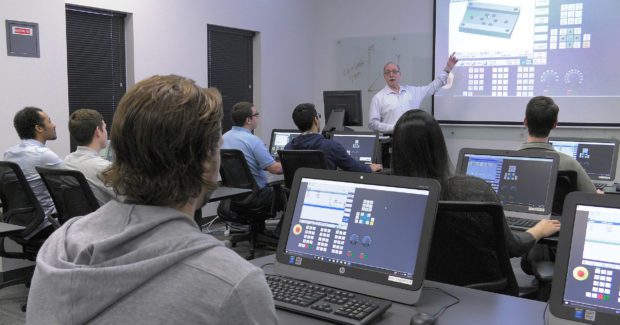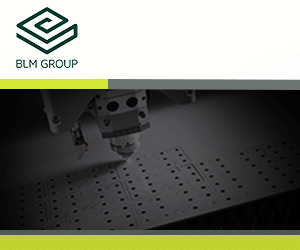Finding Workers: More Than a Help-Wanted Ad
There are a variety of initiatives and programs your shop can utilize to ease the challenge of finding workers.
Posted: February 1, 2022
The manufacturing sector faces a dichotomy where output continues to surge while record numbers of jobs go unfilled. A challenge in attracting workers is getting the word out about the opportunities, advantages, and the prospects for career growth.
Modern manufacturing jobs are built on technology, which is something those not associated with manufacturing may not be aware of. To attract — and retain workers — manufacturers are encouraged to invite people in to show them modern manufacturing processes. Reach out to underrepresented communities, military veterans, educators, guidance counselors, parents, and students themselves.
Once you have their attention there are several initiatives and programs you can utilize to share and provide firsthand opportunities regarding the benefits of careers in modern manufacturing. In Wisconsin, one production supervisor’s experiences as a youth apprentice had such an impact on his career path that he lobbied his employer to offer the same program in their operations. It is a full-circle story of giving back. Joe Graef, production supervisor for Komatsu Mining Corp. in metro Milwaukee, Wis., was part of the 2002 graduating class of the youth apprenticeship program offered through GPS Education Partners (GPSEd), based in Waukesha, Wis. He now partners with GPSEd to mentor and train the next generation of manufacturing workers.
GPSEd offers training for partner companies and their mentor/trainers covering many facets of instruction, as well as how to work with a young person. “We hear from our business partners that mentors enjoy seeing a young person thrive and who will hopefully embark on the career they have been involved in for years,” said Jeremy Joecks, director of partner services, GPS Education Partners. “They see the future is bright.”
Joecks said the organization encourages its partners to expose students to as many operations and machines as possible within a shop. “Our program has purposeful rotational elements in it so that when a student works in a business as a youth apprentice their whole program is designed around trying to experience the full manufacturing process, from raw material in the door all the way to finished product out and everything that happens in between.”
This approach provides a richer experience and broader perspective for students, keeping them engaged in the process while allowing them to test drive potential career pathways before investing in continued education or training. Joecks said GPSEd also encourages these rotations with incumbent workers as well as a best practice in employee wellness, particularly with jobs featuring repetitive tasks.
Creators and Heroes Wanted
There are other actions you can deploy to create awareness about the advantages of manufacturing careers. One way is to contact the local school district and encourage them to discuss the advantages of manufacturing careers, technical training and apprenticeships. “Talk about manufacturing’s willingness to pay for associate degrees or maybe bachelor’s degrees while you are earning a wage,” said Harry Moser, founder of the Reshoring Initiative and former president of machine tool maker GF AgieCharmilles. “Get your high schools to tell the complete story of career opportunities. Anything that helps recruitment is key, such as open houses where students and parents and so on can see the shop.”
Efforts such as inviting people into the shop allows you to control the narrative about the opportunities for career growth. “We need to tell our story because unless you know somebody in manufacturing, you probably don’t know what the opportunities are,” said Carolyn Lee, the executive director of The Manufacturing Institute, the workforce development and education nonprofit partner of the National Association of Manufacturers (NAM).
To that end, The Manufacturing Institute has several programs underway to create awareness about the career opportunities manufacturing careers provide, which includes Creators Wanted in partnership with the NAM, MFG Day and Heroes MAKE America. As part of the Creators Wanted campaign, Lee and her team visited six states in the fall of 2021 and convened manufacturers and local schools and underrepresented community groups to discuss the rewarding promise of manufacturing careers.
During these events, leaders share how manufacturing requires key skills and competencies that will enable people to be successful in manufacturing careers, and the fact that there is an opportunity for life-long learning. Manufacturers can also demonstrate how the products they produce make a difference. “Research shows Millennials and those after really want to know what they do matters,” Lee said. “And manufacturing companies have a leg up on the why and the mission part. We are making lives better, making people healthier, and innovating really cool things.”
In another program, Heroes MAKE America’s training is geared toward transitioning service members and those fully separated veterans and others from the military community. The participants learn manufacturing skills and combine them with skills learned in the military such as leadership, teamwork and problem solving. There are approximately 200 graduates from the program, with a 90 percent placement rate. The program features a pilot initiative that utilizes virtual reality for training.
Meeting Digital Natives Where They Are
With the virtual reality training, The Manufacturing Institute and NAM are plugging into the digital savvy nature of today’s talent pool, who in addition to classroom instruction are seeking online courses, on demand training and virtual reality training, which affords opportunities to upskill faster.
Siemens is among the manufacturers who offer both firsthand and online learning (two paths to enhanced performance) where CNC professionals can expand their skill sets and careers and become indispensable on the shop floor. For shop owners, the ability to upskill their staff to generate more shop floor revenue means they can better control their futures.
Regarding online instruction, Siemens offers live courses monthly. Courses are archived and available on demand, for access anytime, anywhere. The resources are also updated frequently. “Our online campus, featuring dozens of technical webinars, is located at usa.siemens.com/cnc4you,” said Chris Pollack, virtual technical application center manager for Siemens. “All of the topics that are covered in our hands-on classroom courses — such as variable-based programming, logic-based programming, and multi-axis milling and turning — are covered online as well.”
Siemens noted in a recent press release that machine shops find that today’s “digital-savvy workforce more readily interacts with controls that speak their digital language.” The company’s SINUMERIK CNC platform features an app-like interface that is easy to use, “from 3-axis all the way to full 5-axis machining, according to the release. “Training staff on mixed-technology machines that do the work of two or more machines simplifies scheduling, reduces setups, and accelerates production.”
The application of digital skills in manufacturing is deeply embedded throughout the sector, Lee said. For example, a mining company official recently told Lee that the company’s technicians are using drones and other technology underground to prepare for mining activities.
“Young people enjoy all of the interactions of technology — it is there each and every day,” Lee pointed out. “You walk into machine shops and the CNC machines have touch pads. You are not hand setting up the lathe but using PLC controllers. You are using technology the digital natives are so fluid in and that is part of your everyday experience. Automation enhances and augments the worker’s experience.”
Don’t forget all the jobs needed to create the technology, to maintain the technology, and interact with the technology. “There is all of that ripple that comes from these great investments, which are going to make us more competitive manufacturing here in the United States,” Lee added.
Joecks said based on a recent report issued by the Northeast Wisconsin Manufacturing Alliance and a Wisconsin university partner, the manufacturing sector looks healthy and strong as companies invest in plant modernization efforts and technologies. “They are expecting to hire — with the biggest concern being: ‘how are we going to find enough people to do the work?’” Joecks said. “I encourage businesses that have been resistant or hesitant to consider a youth approach to put it on the table. There is an untapped potential of young people who are not on track to find meaningful work and a meaningful life and who would benefit from being exposed to the manufacturing industry.”
www.manufacturinginstitute.org
Apprenticeships are in Wisconsin’s DNA
Wisconsin is home to the country’s oldest registered adult apprenticeship program, which started in 1911. This work-based learning strategy extended to a youth apprenticeship program established in 1991. In 2000, GPS Education Partners (GPSEd), a 501(c)(3) based in Waukesha, advocated with the state to relax the youth apprenticeship rules and worked to demonstrate the potential for all students to participate, regardless of their GPA. The organization partners with an ecosystem of approximately 50 school districts and approximately 100 manufacturers (many in metal fabrication and machining) in northeast and southeast Wisconsin. Seven GPSEd Education Centers, embedded within businesses, provide space where instructors and workplace learning coordinators provide a blend of part day class, part day work — or part day learn, part day earn.
For example, Steel Craft Corp. in Hartford, Wis., which conducts processes such as welding, metal fabrication, metal forming and punching, hosts the entire Education Center for Washington County, said Jeremy Joecks, director of partner services, GPSEd. Waukesha Metal Products in metro Milwaukee offers two locations for apprentice training. The company manufactures metal products for the automotive and medical industries, among others. Creative Metal Products Inc. in Neenah, Wis., typically hosts three or four youth apprentices per year, and has a strong success rate in hiring students after the program.
The program focuses on training high school juniors and seniors. GPSEd provides the full educational experience for students through its programming. Businesses are rewarded with a future talent pool, as well as the opportunity to give back to their communities. GPSEd has extended its services across the Midwest and beyond as an intermediary connecting schools and businesses to build work-based learning solutions. “We provide expertise, systems and programmatic elements to the local school districts and business communities,” Joecks said. “These solutions become part of our clients’ workforce development strategies and can continue to be ‘Powered by GPSEd.’”
For more information, visit www.gpsed.org.





